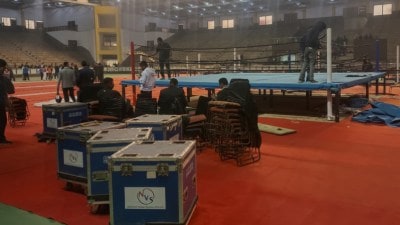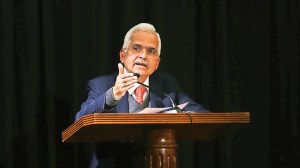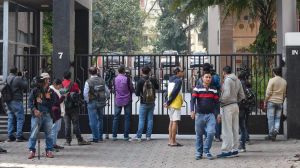From The Urdu Press
The Urdu Press has expressed shock and disgust at the terrorist attacks on Mumbai and laid stress on the need for rising above differences of all kinds and rising as one to meet the challenge of terrorism.

Mumbai terror
The Urdu Press has expressed shock and disgust at the terrorist attacks on Mumbai and laid stress on the need for rising above differences of all kinds and rising as one to meet the challenge of terrorism. Statements of different sections of leaders of the minority community reflect the agony and desperation at these dastardly acts in all sections of the society.
There is widespread criticism of the failure of the agencies connected with the nation8217;s security. Detailing the various warnings given to these agencies, Rashtriya Sahara, in its editorial December, 1 entitled 8216;Shivraj Patil ka isteefa8217; emphasises that the warnings had even indicated that terrorists can use the sea route to Mumbai using fishing trawlers. It says: 8220;How casual is our administration with regard to the security of the country can be assessed by the fact that intelligence sources had informed the National Security Council Secretariat, Joint Intelligence Council, Sea Coast Guard and the Maharashtra government about possible terrorist attacks but no agency paid attention to these inputs and perhaps ignored them as routine warnings.8221; Hyderabad-based Siasat, in its editorial Online: November, 28 writes: 8220;One of the most important aspects of the terrorist attacks is how an attack of such a magnitude could not reach the secret network or radar of the intelligence agencies?8230; This is a clear failure of these agencies.8221; The paper further writes: 8220;Following the attacks on Mumbai, the need has arisen of setting up an agency of a national nature that should do the job merely of collecting intelligence inputs and there should be the minimum possibility of slackness. Apart from this a separate agency can be constituted to formulate a plan of action and take practical steps.8221; Delhi-based Milap November, 30 too has pleaded for a national body 8220;that could act as a bridge between the various intelligence and security agencies.8221; Mumbai8217;s premier daily, Inquilab, in an editorial entitled 8216;Dehshatgardi ke khilaf yek jehti8217; unity and harmony against terrorism On Line: Nov 28 has reflected on different aspects of this 8220;big and organised conspiracy, 8221; have been made possible only by some large network.8221; The paper talks of the current economic crisis, the ongoing elections in many states and the fact that the Parliamentary elections are also not very far off. 8220;An effort has been made to divert our attention from an important political and parliamentary imperative,8221; the paper opines. The paper has also laid stress on the killing of three officers of the police. 8220;The manner in which three high police officers were targeted in the biggest terrorist attack on the country, shows that those firing indiscriminately could have even been after the life of these officials. If it is so, it is an extremely sorrowful and alarming act.8221;nbsp;
In the context of the widespread anger among the people and the government8217;s determination for strong action following the terrorist attack, Rashtriya Sahara, in its editorial on December, 2, writes: 8220;The greatest need of the time is not to lose our senses and balance of mind and to make efforts to go to the root of the entire conspiracy and reach the real masters of these terrorists 8220;asal aaqaon tak pahonchne ki koshish ki jaaye8221;. Talking of revengeful acts or of war would, in a way, amount to letting the unholy naapak plans and intentions of the elements and forces that have hatched the entire conspiracy according to a well thought out scheme succeed. As the name of ISI and Pakistan is clearly coming up in this episode and that country itself is bearing the brunt of terrorism for a long time, it becomes imperative for it to provide to its neighbouring country all possible cooperation, information and facilities necessary for inquiring into these abominable ghinaoni activities. If an effort is not made to resolve this very serious problem through talks, mutual cooperation and information concerning the activities of the terrorists, the result can be so ferocious bhaynak for both the countries and particularly for Pakistan that would be hard to imagine.8221;
8212;Compiled by Seema Chishti
- 01
- 02
- 03
- 04
- 05































